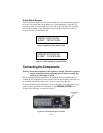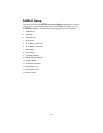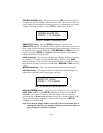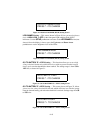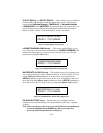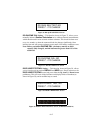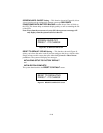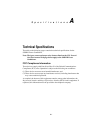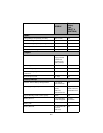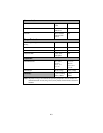
3-2
Connected equipment reboots or turns off during
or after the unit is on battery power
Note: The unit will not turn on and accept incoming utility power if the
power is out of range. The unit can still be "cold-started" using
battery power by pressing and holding the power switch in until
the unit beeps.
Probable Cause: Circuit breaker has tripped.
Solution: Check both your home and unit circuit breakers. If
the circuit breaker on the rear of the APC unit has
"tripped", the center post will be extended out
about 1/4 to 1/2 inch. Push it back in to reset it. If
it trips again, reduce the number of devices that are
plugged into the unit one at a time, and try again.
Note: The unit circuit breaker is rated for 15 Amps; however, the
National Electrical Code (NEC) dictates that any particular
home circuit should not be loaded to more than 80% of its rating.
Probable Cause: Battery was disconnected after the unit was
installed and powered on.
Solution: The unit will warn you via the LCD if the battery
is disconnected, but this warning could go
unnoticed. Remove the front bezel by grasping the
sides of the bezel and pulling straight back. Check
the battery connection to ensure that it is fully
pushed into its battery connector socket.
Probable Cause: The unit is overloaded.
Solution: The unit has too many devices plugged into the
outlets, the runtime when operating on battery will
become very short. If you check the display, you
can determine how much of the UPS load capacity
is used. Also, there is a red OVERLOAD LED on
the front panel that will light if the unit is
overloaded (greater than 95%), we recommend
that you reduce the load by unplugging one or
more devices.
Probable Cause: Battery charge was low when the unit switched to
battery power.
Solution: Allow the unit to full recharge by leaving the unit
plugged in. It must charge approximately 8 hours
to recharge a discharged battery to 90% capacity.



